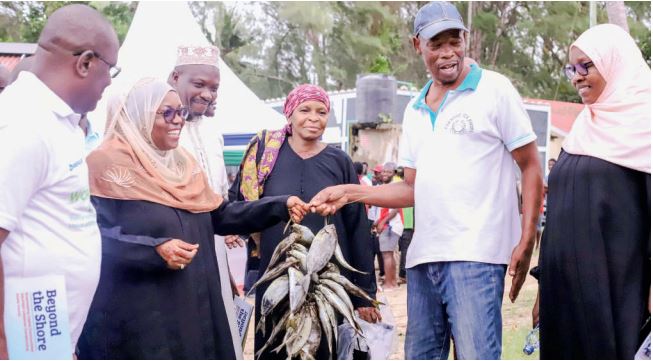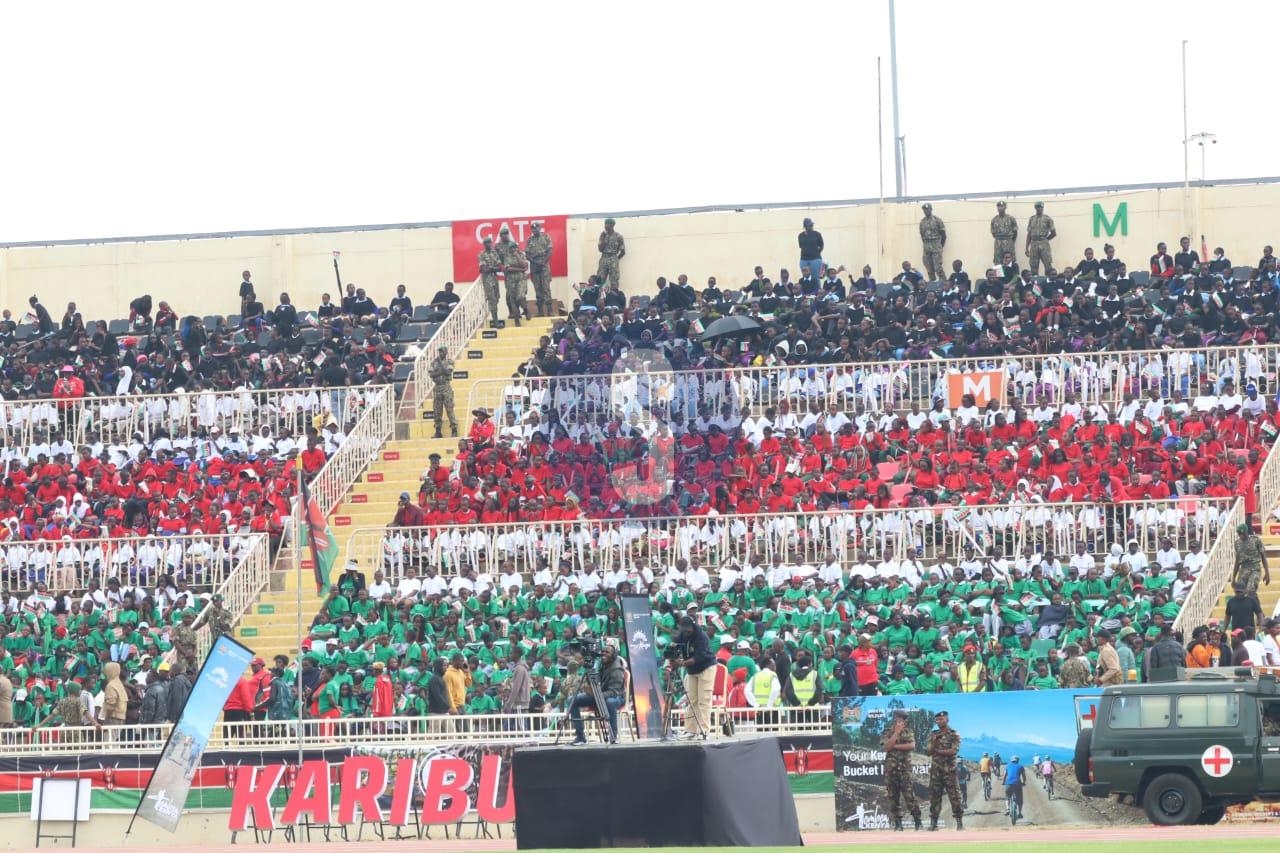Kwale government in partnership with the Kenya Marine Fisheries Socio-Economic Development project has distributed 13 fibre boats to local fishermen and seaweed farmers.
The Sh10 billion Kemsfed project is under the State Department for Blue Economy and Fisheries with support from the World Bank.
The project is being implemented in Mombasa, Kwale, Kilifi and Lamu to improve livelihoods.
The 202-25 donor funded programme seeks to expand access to livelihood support, food security services and grants for poor and vulnerable households and businesses, contributing to the overall socio-economic development.
Kwale government underscored the importance of these initiatives in enhancing food and nutrition security and supporting local fisheries and agriculture.
In collaboration with coastal county governments, Kemsfed provides farmers with extension services, seeds, and other inputs to increase production, improve value addition and raise household incomes.
Governor Fatuma Achani said the boats, with outboard engines and other auxiliary fishing equipment were distributed to boost productivity and improve livelihoods.
She praised Kemsfed and the national government on the partnership to uplift artisanal fisheries value chain in the coastal region.
Achani said ocean fishing plays a significant role in the region's economy and food systems but said sustainable practices were essential to protect fish stocks and the livelihoods that depend on them.
She said the boats are part of commitment to support the fishery value chain, which has been facing multiple challenges, including climate change and depletion of marine resources.
Achani spoke at Mkunguni beach management unit in Ramisi ward in Msambweni subcounty.
The governor said six boats would be used to harvest seaweed from the Indian ocean while the remaining seven boats would be used by fisherfolk for deep-sea fishing.
Achani was accompanied by agriculture and fisheries executive Roman Shera, who said seaweed farming is an "untapped treasure" the devolved government is committed to supporting.
“So far, we have established 21 seaweed farming groups with about 420 active farmers in Msambweni and Lunga Lunga Lunga subcounties. We are also supporting seaweed farmers every year with seaweed farm inputs including ropes, gumboots, gloves and weighing scales,” she said.
Achani said her county through Kemsfed, has provided fish farmers with free fish feeds, nets, ropes, floats, deep-sea fishing vessels and sinkers.
Deep sea fishing is undertaken beyond the limit of territorial waters, which is seven nautical miles from the shore and within the Exclusive Economic Zone of 200 nautical miles from the shore.
Kenya's Exclusive Economic Zone is a 370 km area extending outwards from its coastline, granting the country sovereign rights over its resources such as fisheries, oil and gas and other seabed minerals.
“The main focus of the partnership with Kemsfed scheme is to provide assistance to farmers to enhance their productivity and create wealth across the agricultural value chain,” Achani said, noting that Kwale would continue to support sustainable practices by small-scale fisheries and aqua-farmers.
She said Kwale is seeking to boost seaweed farming operated by coastal communities along the shores of the Indian Ocean to increase production and enhance sustainable livelihoods.
The various species of red, brown and green seaweeds found in Kwale are cultivated by fishing communities for both domestic and industrial use, offering profitable opportunities.
Achani said seaweed plays a key role in ocean ecosystems, supports diverse marine life and benefits a wide range of human industries from nutrition and agriculture to scientific research and climate solutions.
The coastal county boss said her administration is constructing a seaweed store at Mwazaro, saying the purchase and distribution of the six boats would be used for transportation of farmers and harvesting of seaweed.
“Kwale has purchased and distributed assorted seaweed value addition equipment such as disc mill, pulverizing machine, soap plodder to eight seaweed farmer groups,” she said.
Some of the beneficiaries of the empowerment initiatives expressed their gratitude and shared their optimism about the positive changes the interventions would have on their lives.
Msambweni Beach Management Unit Network chairman Mtengo Omar thanked the Kwale government and Kemsfed for recognising them as fishermen worthy of support.
“So far, we have been given 62 boats free of charge which has made fishing easy,” he said.
Ashura Sheboi, a representative of Tumbe Sea weed farmers, welcomed the empowerment initiatives noting that the county government and donor programmes were changing lives for the better.
Sheboi called on the local fisherfolk communities to explore seaweed farming which he hailed as an untapped, climate-friendly resource.
Seaweed is used in making various products, including soap, shampoo, seaweed powder for food, and as a raw material for pharmaceutical and cleaning products.
Maritime industry partners contend that seaweed known as ‘climate-smart algae’ plays an important role in the marine ecosystem as it absorbs significant amounts of carbon and reduces ocean acidification.
However, global warming is reducing the quality of seaweed in the ocean.
Seaweed is celebrated as 'wonder plants of the sea' and offer a renewable source of food, energy, chemicals and medicines with a wide range of industries. agricultural, biomedicine and personal care applications.
Coastal communities dive underwater to harvest the seaweeds and sell them in two forms; dried and fresh seaweed which fetches them between Sh40 to Sh70 per kg.


















